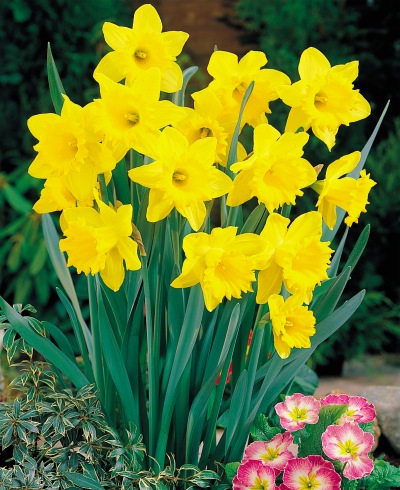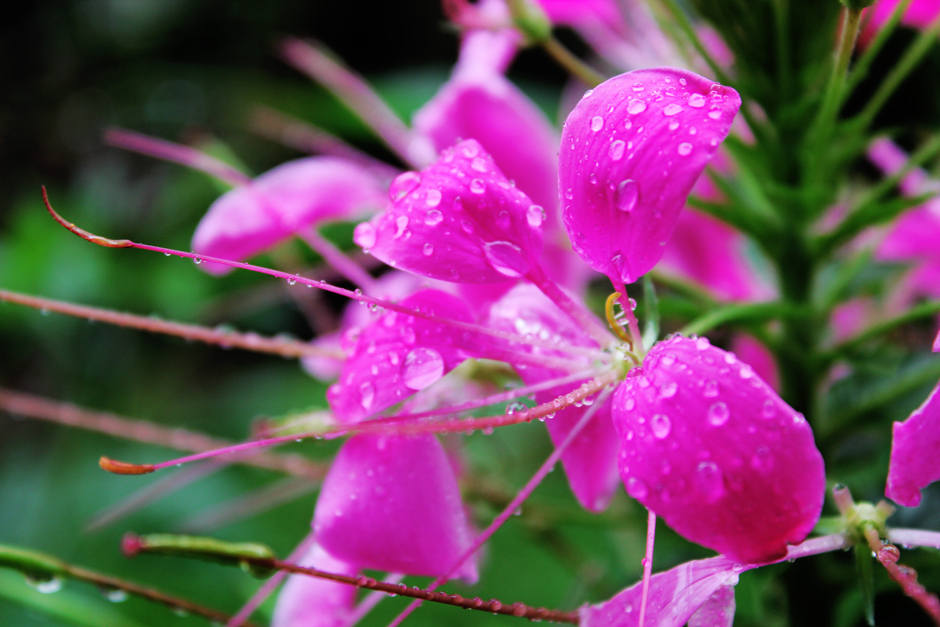Springtime
Springtime


Springtime
"The Light that Gives Life"
“The warmth of the sunny spring days melts the snow of winter, and the solid ice breaks, and the hard clods in the fields are gradually pulverized and spread over the soil, and all the earth made moist, and warm, and fertile, for the reception of the seed, that it may grow and produce a bounteous harvest. So is the action of God's grace on a frozen and unfruitful heart. There are so many wintry lives; in order that they may become fruitful they must be melted and broken as the ice and snow and frozen earth melts, and breaks, and disintegrates, under the influence of the sun in the springtime. In both instances it is from Him, the Light of the World, that this influence, which brings forth a renewed and resurrected life, proceeds.”
March 4, 1897 EJW, PTUK 133
--------------------------
"God's Handiwork"
“The winter has past and the brightening, warming sun gives promise in its enlivening beams of the vernal joys of bud, and bloom, and fresh green leaves, and singing birds, which are near.
Yet, while the springtime and the summer are beautiful, and show forth to us daily in bewildering multitudes the marvels of God's handiwork, the winter-time is no less wonderful in its beauty, and at the same time no less beautiful in its wonders.”
March 11, 1897 EJW, PTUK 145
------------------
"For Little Ones. The Father's House"
“Many of you have no doubt noticed the sweet, merry songs of the birds, that are again filling the air with melody, as if to welcome the returning sunshine, and to help to awaken the spring flowers that are sleeping later than usual this year, because of the cold weather, which makes them keep tucked up in their warm winter wrappings for fear of being nipped by the frost.
The morning, as the daylight comes in, is the time when the bird songs seem the fullest and sweetest. And the springtime, which is the bright morning of the year, when the sun returns to waken nature from its long winter sleep, is the time when the birds burst out into their sweetest notes of joyous song.
Now of all times, when they are so happy and busy, building their nests and preparing for the summer's work of rearing their young ones, they seem to call the most attention to themselves, and we are most inclined to "Behold the birds of the air," and learn from these, His little messengers, the lessons that God would have them teach us. One of the things that Jesus tells us to notice about them is, that "Your Heavenly Father feedeth them." Though they have "neither storehouse nor barn, though they neither sow nor reap, and are not able to make any provision for themselves, yet they are not troubled and anxious about where the next meal is to come from.
Mr. Spurgeon tells of a little girl who lived in the city where she was accustomed to seeing birds kept in cages, and she must have thought that this was the natural and proper life for little birds. For when she was taken for the first time to the country, where she saw the free birds flying in the air, and hiding among the branches of the trees, she said to her mother, "O mamma, look at those poor little birds! They have not got any cages!"
The "poor little birds" would a great deal rather be without the cage, even though it might mean food and water always within sight. For though they are fortunate enough to have no cages, they do have a house, a large, free beautiful house. "Yea, the sparrow hath found an house, and the swallow a nest for herself where she may lay her young, even Thine altars. O Lord of hosts."
This is what David said when he was talking about God's house. God dwells everywhere, filling the heavens and the earth with His holy presence. Wherever God dwells is of course His house; and so of every place we may say like Jacob, "The Lord is in this place." "This is none other than the house of God."
Everything that God has made in heaven and earth is a part of His great family; and "the whole family in heaven and earth" dwells in "the Father's house." God's dwelling place is the home of all His creatures; but it is such a large place, and we perhaps do not know more than our own little corner of it. We do not now understand and "know the length and breadth, and depth and height." Yet we may rest content and happy, knowing that we are in the Father's house, and that He is with us, caring for all our needs.
Like us, the birds are "the offspring of God," and they too dwell in His house, and are fed from His table. "These wait all upon Thee, that Thou mayest give them their meat in due season. That Thou givest them, they gather."
Many of these little birds have seen more of "the Father's house" than you have; for they have been a long, long journey over land and sea, since last we heard them sing in the autumn. When there was no food for them here, God guided them to another part of His house, where they would find plenty to eat through the winter. Now He has brought them back to sing to us through the summer, and to teach us this lesson among others: "Happy are they that dwell in Thy house; they will be still praising Thee."
The songs of praise seem to well up from their light hearts, as though they had heard the words of Jesus, "Not one" of them shall fall without the Father's notice. "He feedeth them." So they have no care, for He careth for them. And it for them, how much more for you, who dwell also in His house, and are "of more value than many sparrows."
So we may learn from the birds that
"His goodness stands approved,
Unchanged from day to day,"
and then like the birds we shall
"drop our burdens at His feet
And bear a song away."
April 12, 1900 EJW, PTUK 234-235
Spring Creation
“Remember what we talked about last week,-the birds' eggs, and how they are charged by the power of God's Word into beautiful little living creatures. But there are some eggs that are never so changed.
If you should take away the eggs from the nest of any bird, or if the birds should desert the nest, they would become spoiled, and although there are such wonderful possibilities within them, they would come to nothing.
For although the eggs themselves are formed by the power of the Word of God, He has not made them so that they can of themselves produce the living bird. They must be kept in the nest where the mother bird broods over them with sheltering wing, and life-giving heat from her own body.
And in that, as in all things, God has a beautiful lesson for us. If you learn it carefully now, the birds themselves will continually remind you of it, so that you will not forget.
In the beginning,-(have you noticed how all our talks take us back to the beginning? This is because we are learning "the Gospel of the Spring." Look in your dictionary for the meaning of this word, and we will talk of it again next week).
In the beginning, "the earth was without form and void." Then God spoke to the earth and to the waters. You may read what He said in the first chapter of Genesis. He told the earth to bring forth grass and trees and living creatures; He told the waters to be gathered together into one place, and to bring forth all kinds animals, and birds to fly above the earth.
How could the earth and the waters bring forth all these wonders? They could not, of themselves, any more than an egg can of itself produce a living bird. But,-"the Spirit of God moved upon the face of the waters," and upon the earth, and so every word that God spoke was at once fulfilled.
The formless earth took just the shape that was in the mind of God, and brought forth grass, trees, and living creatures and creeping things. The waters brought forth great whales and all kinds of fish, and birds of beautiful plumage, able to fly above the earth in the open firmament of heaven.
All this was not the work of the earth or the waters, but of the creating Spirit of God which moved upon them when God spoke. In the beautiful expression, "The Spirit of God moved upon the face of the waters," "the Hebrew word 'moved' refers to the movement of the wings of bird as it hovers over the nest."
The mother bird broods in silence over her seemingly lifeless egg until the Word of God which is working there is fulfilled, and a perfect living bird is brought forth-a beautiful peacock, or a dazzling bird of paradise or humming bird, a pure white swan, or a sweet-singing nightingale.
God uses this to teach us of the work of His Holy Spirit,-how it moved and brooded in the beginning over the earth that was "without form and void," until it was brought to perfection and filled with life and beauty, and "God saw everything that He had made, and behold, it was very good."
This is a lesson that will help you everyday. Do not forget that God made us from "the dust of the ground," and that you have no more power in yourself to become like God and do His will than the dust over which you walk.
But when God speaks to the dust and His Spirit moves upon it, it becomes and does exact what He says. So when He speaks to you and you listen to His Word, His Holy Spirit will move upon your heart, and brood there until His perfect image shall shine forth, and He will see you "very good," as He saw all His works in the beginning.”
March 30, 1899 EJW, PTUK 202